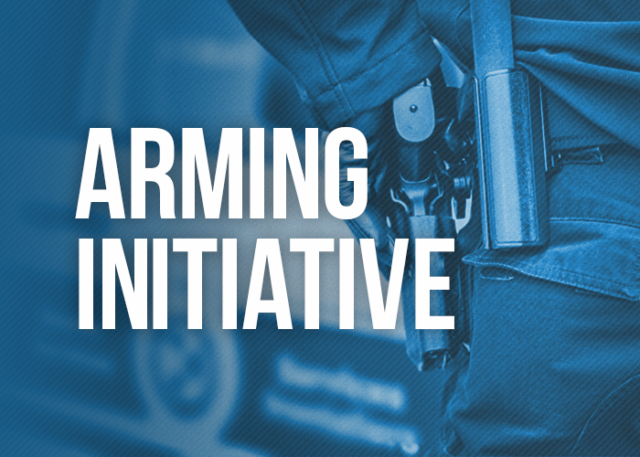PSAC-CIU Wins Case Allowing Workers to Support Their Union at Work
PSAC-CIU has successfully challenged a Canada Border Services Agency (CBSA) decision that prevented Border Service Officers from showing solidarity with their bargaining team.
In the fall of 2017, the officers began wearing orange shoelaces at work to demonstrate support for their bargaining team. Tensions developed when employees started to wear them as hair ties and bracelets, as well as lanyards. CBSA responded by barring the officers from wearing the shoelaces anywhere but on their shoes.
The Federal Public Service Labour Relations and Employment Board (FPSLRB) recently issued a decision affirming union members’ rights to participate in legitimate union activity – including the wearing of orange shoelaces, whether laced up, as hair ties or as bracelets.
The decision concludes that the employer’s ban was an unfair labour practice and a violation of the collective agreement. The Board also found that there was no evidence “that anyone’s health or safety would in fact be at risk with this usage of the shoelaces.”
Employer can’t dictate how union members express solidarity
The FPSLREB stated that “the CBSA cannot dictate how employees may express their solidarity with their bargaining team.” Where an issue arises, the solution is not a blanket prohibition; nor can the employer use unverified health and safety concerns as a reason for denying the workers’ rights.
Our members are trusted to protect Canadians from terrorism, illegal goods and criminal activity. Therefore, the FPSLREB concluded there is no basis for the employer not to trust them to make common sense decisions when it comes to their safety and the wearing of the shoelaces.
The decision includes an order that the employer must “post this decision for 90 days on its intranet as well as at all BSO worksites.”
Read the full decision here.
A version of this article was posted on the PSAC website.








